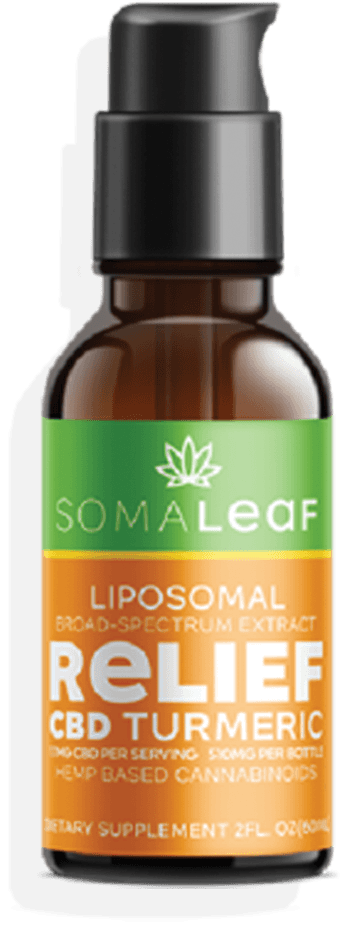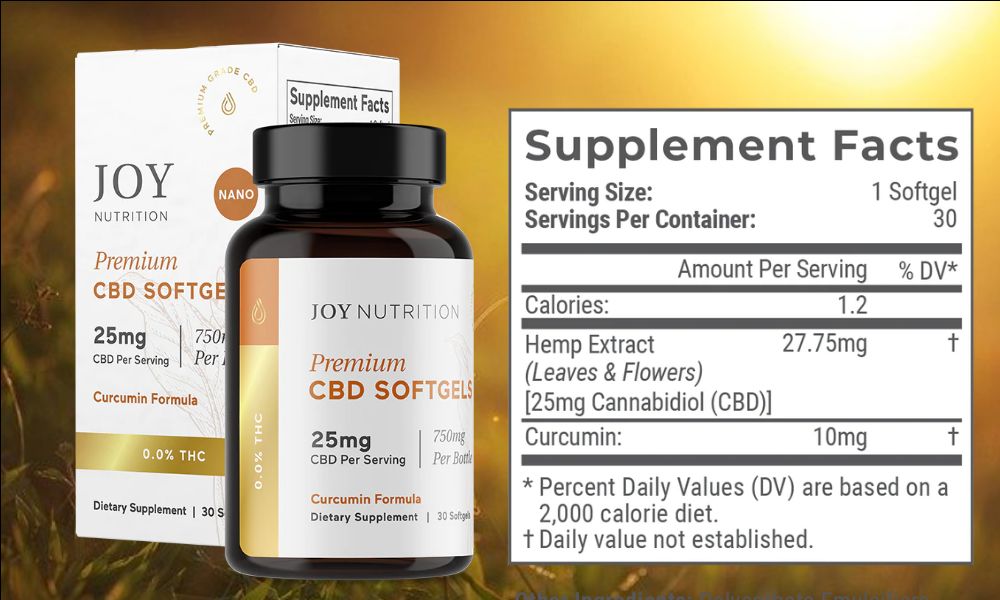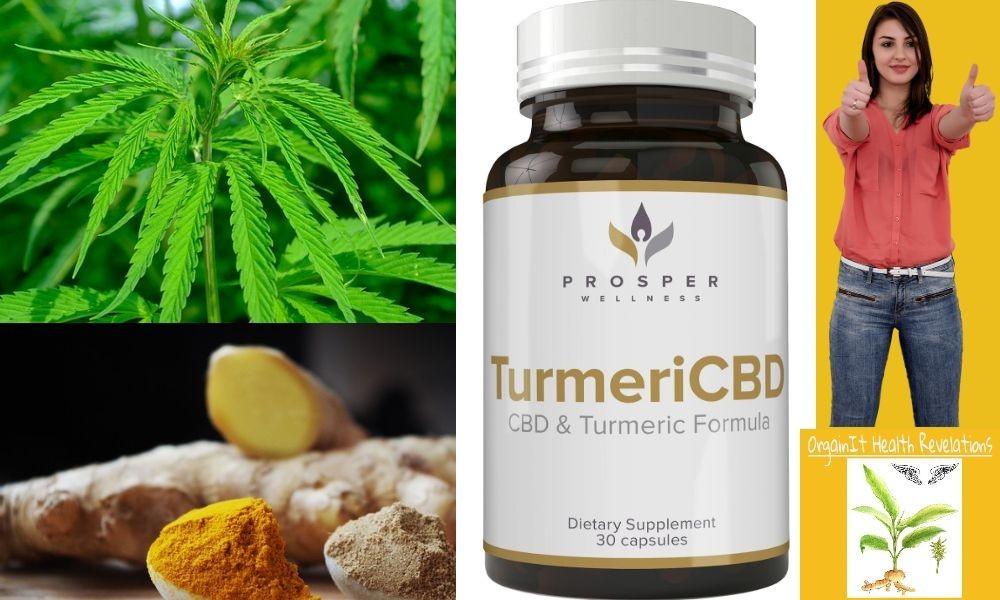The Science Behind Turmeric And CBD: What You Need To Know
G’day, folks! Rob here, your midlife health mate, coming at you on October 02, 2025. If you’re navigating the wild ride of life between 40 and 65, you’ve likely heard the buzz around two of nature’s biggest hitters: turmeric and CBD. You see ’em everywhere, from the local chemist to your social media feed. But what’s the real story when you put them together? Is it just hype, or are we looking at the wellness world’s next power couple? As someone who’s been on a health quest since a footy injury back in ’98, I’ve learned to cut through the noise. The truth is, the latest 2025 science shows that combining these two isn’t just a trend—it’s a breakthrough, especially for us midlifers dealing with creaky joints, brain fog, and the daily grind.
We’re not just talking about sprinkling some spice in your latte. We’re diving deep into how these two ancient remedies work in synergy, creating an effect that’s far greater than the sum of their parts. We’ll unpack the brand-new science, explore the real-world benefits for things like nagging pain and mood swings, and I’ll even give you my top picks for the best combination products on the market in 2025. My mate Steve, 58, put it best: “I was taking turmeric for my knees and CBD for stress. When I found a combo supplement, it was a total game-changer. Everything just felt… balanced.” That’s the magic we’re chasing. Let’s get into it.
Quick heads-up: I might earn a quid—means a small commission—if you buy through links on this page, at no extra cost to you. It helps me keep the lights on and the good oil flowing. Cheers for the support! See my full disclosure.
Table of Contents
- Why Turmeric + CBD is the Midlife Power Couple
- Who’s Rob & Why Trust This Yarn?
- The Active Players: Curcumin and Cannabinoids
- The 2025 Breakthrough: How Turmeric and CBD Work Together
- Top 5 Midlife Benefits of the Turmeric-CBD Combo
- Rob’s Picks: The Best Turmeric + CBD Supplements of 2025
- Safety, Side Effects, and Getting it Right
- Your Top Questions on Turmeric and CBD Answered
- The Verdict & Your Next Move
Who’s Rob & Why Trust This Yarn?
I’m Rob, a regular bloke in his 50s who’s spent the better part of two decades figuring out how to keep this body from falling apart. It all started with a busted ankle from footy, which sent me down a rabbit hole of natural health that I never quite came out of. I’m not a doctor in a white coat; I’m a midlifer, just like you, who’s tired of the aches, the brain fog, and the feeling that you’re running on empty. I’ve spent years digging through dense scientific studies, chatting with experts, and, most importantly, trying things out myself.
My goal is simple: to translate the complicated science into straight-up, practical advice for people our age. Trust is everything, so I’m always upfront. Every claim I make is backed by solid 2024-2025 research or real-world experience from our community. The history of turmeric is long, but its modern application is what truly excites me. This isn’t about chasing fads; it’s about finding what genuinely works to make our second half the best half.
The Active Players: Curcumin and Cannabinoids
Before we get into the magic of the combination, let’s get to know the stars of the show. In turmeric, the hero compound is curcumin. It’s what gives the spice its brilliant golden colour and, more importantly, it’s where most of the potent anti-inflammatory and antioxidant properties come from. The challenge with curcumin, as we’ve discussed in our turmeric vs. curcumin breakdown, is that our bodies struggle to absorb it on its own.
Over in the green corner, we have CBD, short for cannabidiol. It’s one of many cannabinoids found in the hemp plant. The key thing to know is that CBD interacts with our body’s own endocannabinoid system (ECS). Think of the ECS as your body’s master regulator, a complex network that helps manage everything from pain and mood to sleep and appetite. Unlike its cousin, THC, CBD is non-psychoactive, meaning it delivers its potential benefits without the “high.”
The 2025 Breakthrough: How Turmeric and CBD Work Together
Alright, here’s where it gets really exciting. For years, we knew both were good on their own. But the latest 2024-2025 research is revealing a powerful synergy between them. It’s not just 1 + 1 = 2; it’s more like 1 + 1 = 3. They amplify each other’s strengths, and it all comes down to a few key scientific principles.

As the infographic above shows, their teamwork is a multi-pronged attack on the things that ail us in midlife:
- Enhanced Anti-Inflammatory Action: This is the big one. Chronic inflammation is a root cause of so many midlife issues, from sore joints to heart troubles. CBD works by interacting with our ECS to help regulate the body’s overall inflammatory response. Curcumin, meanwhile, is like a special agent that directly inhibits specific inflammatory molecules like NF-kappaB. When you put them together, you’re fighting inflammation from two different, complementary angles. It’s a strategic pincer movement against inflammation, a core reason why turmeric is great for inflammation.
- The TRPV1 Connection (The “Pain Receptor”): Here’s a gem from the labs. We all have something called the TRPV1 receptor, which is heavily involved in sending pain and inflammation signals. Think of it as a volume knob for pain. Recent studies show that both CBD and curcumin can interact with this receptor, helping to desensitize it or “turn down the volume.” When they work on it together, the effect is more pronounced, leading to more effective relief from those daily aches and pains.
- Improved Bioavailability (Boosting Curcumin’s Power): This is perhaps the most brilliant part of their partnership. As we know, curcumin is tough for the body to absorb. CBD can help. It interacts with certain enzymes in the liver that are responsible for breaking down other compounds. By keeping these enzymes busy, CBD can effectively run interference, slowing down the breakdown of curcumin and allowing it to stay active in your system for longer. It’s like having a teammate who blocks for you so you can make the winning play.
This synergy is what makes the combination so potent. It’s a holistic approach, where each compound makes the other better, offering a more comprehensive solution for our well-being.
Top 5 Midlife Benefits of the Turmeric-CBD Combo
So, what does all that science mean for you and me on a Tuesday morning when our back is acting up? Here are the real-world wins for midlifers.

- Superior Joint and Pain Management: Thanks to their dual-action on inflammation and the TRPV1 pain receptor, this combo is a superstar for managing joint stiffness and everyday aches. It’s a go-to for anyone whose knees are starting to forecast the weather. Many find it more effective than taking either one alone, especially for conditions like arthritis.
- Balanced Mood and Stress Reduction: Midlife is peak stress time. The ECS, which CBD supports, is crucial for mood regulation. By promoting a sense of calm and helping to balance stress hormones, CBD lays the foundation for a better headspace. Curcumin adds to this by potentially boosting mood-related neurotransmitters. Together, they help take the edge off, making it easier to handle whatever life throws at you. This is a key reason people explore turmeric for mental wellness.
- Deeper, More Restful Sleep: If you’re staring at the ceiling at 3 a.m., you’re not alone. By tackling the root causes of poor sleep—pain, anxiety, and stress—the turmeric and CBD combo can help you not just fall asleep faster, but stay asleep longer, leading to more restorative rest.
- Enhanced Brain Health and Clarity: Feeling the brain fog? The anti-inflammatory and antioxidant properties of both compounds are brilliant for brain health. They help protect brain cells from oxidative stress and reduce the neuroinflammation that can lead to memory issues and a lack of focus. It’s a powerful duo for keeping your noggin sharp, a topic we dive into in our guide on turmeric for brain health.
- Gut and Immune Support: A healthy gut is the cornerstone of overall wellness. The anti-inflammatory action of this pair is fantastic for soothing the digestive system. A calm gut and reduced systemic inflammation also mean a happier, more robust immune system, which is your body’s first line of defense.
Rob’s Picks: The Best Turmeric + CBD Supplements of 2025
Navigating the market for a good combo product can be tricky. You need quality ingredients, proper dosages, and a brand you can trust. I’ve tested a fair few, and these are my top three recommendations for 2025, with a clear winner for us midlifers.
THE HERO: SomaLeaf Liposomal Turmeric + CBD
If you’re looking for the best of the best, this is it. SomaLeaf isn’t just another supplement; it’s a high-tech delivery system. Their secret is “liposomal” technology. In simple terms, they wrap the curcumin and CBD molecules in a protective fatty layer (a liposome). This shield protects the active ingredients from being destroyed by your stomach acid and allows them to be absorbed directly into your bloodstream for maximum potency. It solves the biggest problem with most turmeric supplements: absorption.

Why it’s my top pick: The bioavailability is off the charts. You feel the effects—the calm focus, the easing of aches—more quickly and consistently. It’s a premium product, but for midlifers who want results without messing around, it’s worth every penny. It’s a liquid formula, which I find is easier to take and absorb than capsules.
Best for: Anyone serious about getting the maximum therapeutic benefit, especially for chronic pain and inflammation.
Read My Full SomaLeaf Review Check Price for SomaLeaf
Joy Organics CBD Softgels with Curcumin
Joy Organics is a brand that screams quality and trust. They are a family-founded company that puts a massive emphasis on transparency, with third-party lab reports for every single batch. Their softgels combine their THC-free broad-spectrum CBD oil with curcumin in a water-soluble formula, which again, is all about boosting absorption.

Why it’s on the list: The convenience of a softgel is unbeatable, and the quality is top-notch. You know exactly what you’re getting. It’s a reliable, effective, and straightforward option for daily use.
Best for: Those who prioritize certified quality, THC-free formulas, and the convenience of a capsule.
TurmericBD
TurmericBD is another solid contender that focuses on creating a synergistic blend. They combine full-spectrum CBD with turmeric, and often include other beneficial ingredients like ginger and black pepper to further enhance the effects and absorption. Their formula is designed to be a comprehensive wellness tool.

Why it’s on the list: It’s a well-thought-out formula that embraces the “entourage effect” by using full-spectrum CBD. It’s a robust product aimed at those looking for a powerful, all-in-one blend.
Best for: Users who want the full benefits of a full-spectrum CBD product combined with turmeric.
Read My Full TurmericBD Review Check Price for TurmericBD
Safety, Side Effects, and Getting it Right
Now for the important bit: safety. Both turmeric and CBD are generally considered very safe, but it’s not a free-for-all. A few key points:
- Start Low, Go Slow: This is the golden rule. Begin with the lowest recommended dose on the product label and see how your body feels. You can gradually increase it after a week or so if needed.
- Talk to Your Doc: This is non-negotiable if you’re on any prescription medications, especially blood thinners, blood pressure meds, or anything with a “grapefruit warning.” Both turmeric and CBD can interact with certain drugs.
- Potential Side Effects: They are rare and usually mild. For turmeric, it can be digestive upset if you take too much. For CBD, it might be drowsiness or dry mouth. If you experience anything, just dial back the dose. For more detail, read our guide on the side effects of turmeric.
- Choose Quality: Don’t cheap out. The market is flooded with rubbish products. Stick to reputable brands that provide third-party lab results (especially for CBD) to ensure you’re getting a clean, potent product.
Your Top Questions on Turmeric and CBD Answered
Is it really safe to take turmeric and CBD together?
Yes, for most healthy adults, it is considered very safe to take them together. They work on different but complementary pathways in the body. The most important safety step is to consult your doctor if you are taking any prescription medications, as both can have interactions.
Which is better for pain, turmeric or CBD?
Both are effective, but they work differently. The real magic happens when you combine them. CBD is excellent for modulating pain signals via the endocannabinoid system, while turmeric is a powerhouse at reducing the underlying inflammation that often causes the pain. Together, they offer a more comprehensive approach to pain relief.
How long does it take to feel the effects?
This varies. With a high-bioavailability liquid formula like SomaLeaf, some people notice a calming effect and subtle pain relief within an hour. For the long-term anti-inflammatory benefits to really build up and make a difference in things like joint health, you should give it at least 4-6 weeks of consistent daily use.
Can I get high from a turmeric and CBD product?
No. Reputable CBD products are derived from hemp and contain less than 0.3% THC, which is the psychoactive compound. This is not enough to cause any intoxicating effects. Broad-spectrum and isolate products contain 0.0% THC.
What should I look for in a quality combo supplement?
Look for three things: 1) Third-party lab testing to verify CBD content and purity. 2) A clear indication of how they enhance curcumin’s bioavailability (e.g., liposomal, water-soluble, black pepper extract). 3) A reputable brand with transparent practices and positive reviews.
The Verdict & Your Next Move
So, is the turmeric and CBD combination the real deal for us midlifers? My answer is a resounding yes. The synergy is backed by emerging science and countless real-world stories. It’s a powerful, natural way to manage the inflammation, aches, stress, and brain fog that can creep in during our 40s, 50s, and beyond.
If you’re ready to give this power couple a try, my top recommendation is to start with the best. SomaLeaf’s Liposomal formula is, in my opinion, the most effective product on the market for getting the job done right from the start. The superior absorption means you’re not wasting your money, and you’ll feel the benefits more profoundly.
Don’t just take my word for it. Give it a go, see how you feel, and join the conversation. This is about taking control of our health and making our next chapter the most vibrant one yet.



